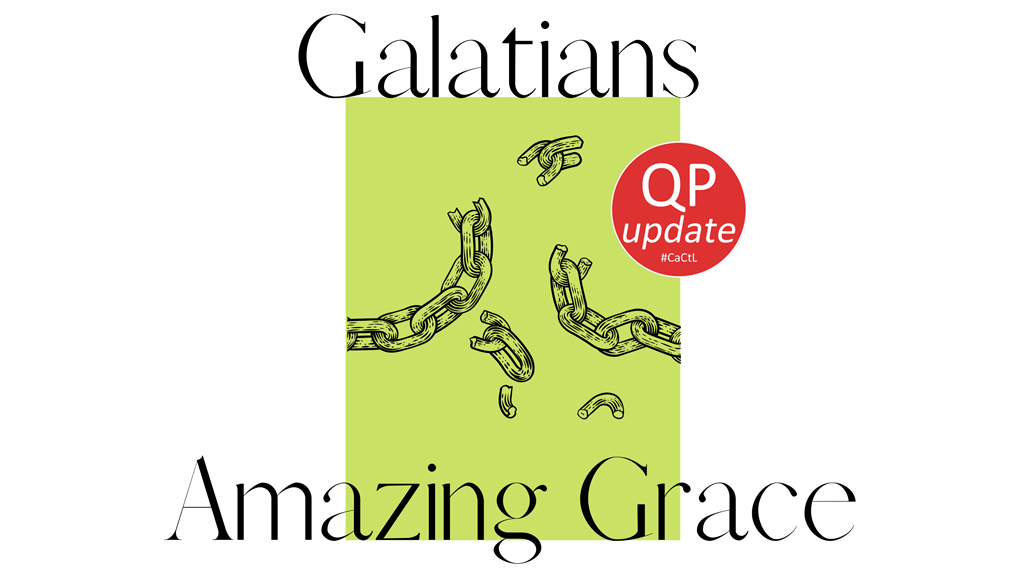Let me begin with a story. It comes from a favourite film, the Shawshank Redemption. It’s the story of an old jailbird called Brooks Hatlen, Shawshank’s librarian. After 40 years of incarceration old-man, Brooks is released into a bright new world of freedom. But his head is still in prison; in the familiar routines and the security of a world he knows. Brooks has been so deeply institutionalised that he cannot shake off his identity as a convict.
The film depicts his complete bewilderment with life on the outside, a life he has longed to lead. He is free but, in his head, he is living as a prisoner, a slave. Spoiler alert: it does not end well.
Brooks’ story is my story. I find my new identity in Christ undermined by pressures to conform to the ways of believing and behaving that belong to the old jailhouse me. Sometimes the old ways look attractive, familiar, and safe!
But in Galatians 4: Paul lets it rip:
“You are no longer slaves, but sons”.
In Christ, we have been released to live a new life! We are dead and unresponsive to the past (Gal 2:20) we are free from any moralistic or ritualistic high wire balancing act (Gal 3:1,2) and the authority of our old life has been undone (Gal 4:5)! We are no longer enslaved to the actions and reactions of our damaged souls, dysfunctional society, or demonic harassment. If the son sets you free – you are free indeed.
Of course, we often find ourselves blind to the liberating power of the cross and the privilege of knowing God as Father. We foist false, damaged images of parenting onto the perfections of God and live out the defective results.
In 2006 Tim Reid, a researcher at Baylor University in Texas, showed how distorted perceptions of God were shaping Americans’ political views. (No doubt we are not that different) He found 4 particular false pictures of God stood out: Authoritarian, Benevolent, Critical and Distant.
In fact, most Christians expected God to be authoritarian, angry and ready to smite any dissent with earthquake, war or death penalty! Besides they also expected their political masters to embody these values too! Perhaps we should not have been so surprised to see militias of gun toting MAGA warriors, bibles in hand, storming the Capitol Building in Washington in January 2021.
Our perceptions of God have massive consequences. “What you believe about God,” said A W Tozer “is the most important thing about you!”
Picking our favourite trope about human fatherhood and ratcheting it up to the max to describe God will not do. Karl Barth caught biblical teaching right on when he said we don’t get to make up who God is, only God has the right to say who he is!
God is not who we say he is! but who he says he is. That requires a heaven to earth revelation. So, where on earth do we begin?
Two things:
- Consider Jesus. “Anyone who has seen me has seen the father,” he said
- Cooperate with the Spirit: calling out God’s fatherhood is the mission of the Spirit in our souls
And one more. Take a deep dive into the images of God that shape your perspective – share your notes with a friend, which will help you both see more clearly
So, let’s start here. Which of these distorted images do you identify with most? God who is Authoritarian (a legalistic tyrant), Benevolent (a sugar daddy who never confronts anything) Critical (nit-picky negative) Distant (absent, uninvolved, vague and indefinable) perhaps you have your very own portrait to add to the gallery of false images!?
Iain
